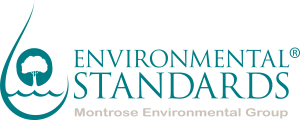
NDMA Contamination in Pharmaceuticals
I remember the conversation. In 2018, my mother-in-law asked me about a recall of her blood pressure medication due to a carcinogenic contamination. To her doctor’s and my alarm, she had stopped taking the medication and requested a prescription change a couple of weeks later. Her doctor changed the medication, but asked her not to stop taking any medication again without consulting her. That year, her blood pressure medication changed two more times due to additional recalls. In the past 3 years, millions of other people also stopped taking vital medications due to fears of getting cancer from N-nitrosodimethylamine (NDMA) contamination in their medications. Health Canada, the department responsible for Canadian federal health policy, noted an increase in emergency room visits that correlated to the blood pressure medication recalls. Is the carcinogenic risk from these medications greater than the risk of abrupt cessation?
NDMA is one of a class of compounds called N-nitrosoamines. Trace amounts of the compounds in this class, including NDMA, can be found in cured meats, cheeses, and beer (oh no!). NDMA is classified as a probable human carcinogen based on animal testing. The United States Food and Drug Administration (FDA) and Health Canada set an intake limit of 0.096 micrograms (μg) per day.
NDMA has been detected in amounts ranging from 0 to 20 μg per dose (over 200× the daily-intake limit) in multiple blood pressure, diabetes, and acid reflux medications. The contamination appears to be originating from multiple sources. NDMA or its precursors may be present in raw materials, solvents used in production, formation during the manufacturing process, and even the drug packaging. In the case of ranitidine (Zantac®), NDMA can form from a known breakdown reaction during storage, even when stored at room temperature. All prescription and over-the-counter Zantac/ranitidine medications were recalled as a result NDMA testing.
The FDA, Health Canada, and the European Medicine Agency (EMA) have all noted that the risk of getting cancer from NDMA in medications is very low. However, many of the contaminated drugs are maintenance medications taken over a long period of time, which warranted the recalls. All three agencies note that the health risk from abruptly stopping a maintenance medication is much higher than the cancer risk from NDMA.
The FDA, Health Canada, and EMA have all issued guidance requiring pharmaceutical companies to conduct assessments of high-risk products and setting 2- to 3-year deadlines for the investigation and remediation of the contamination. The FDA is additionally considering offering incentives to recognize companies with outstanding quality programs. Environmental Standards’ chemistry subject-matter experts can support those efforts through data quality review, laboratory audits, and overall project planning. In the meantime, pay attention to recalls, but do not stop taking any medication without consulting your doctor.

